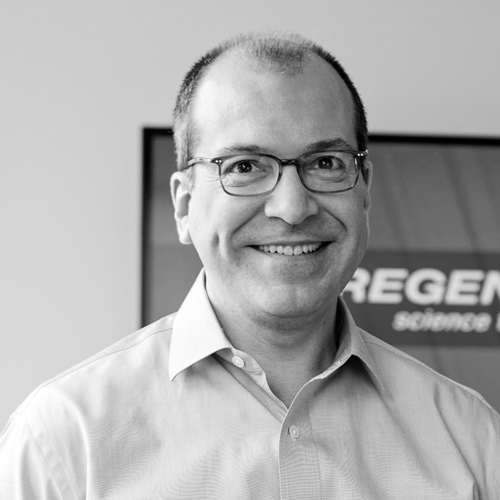It was the type of headline no in-house attorney ever wants to read, but Celia Catlett read it in October 2011: “Texas Roadhouse Refused to Hire Older Workers Nationwide.” Though it was disappointing, the then-associate general counsel was hardly surprised. After years of investigation, the Equal Employment Opportunity Commission (EEOC) formally alleged the restaurant denied older workers prominent positions.
In its lawsuit, the EEOC alleged that Texas Roadhouse had demonstrated a pattern of age discrimination by underemploying workers over 40 years of age for highly visible “front of house” positions dating back to 2007. The EEOC also alleged that the company suggested its managers should hire younger job seekers. With its suit, the agency is seeking monetary awards for applicants denied employment based on age.
“Everyone lives in fear of this type of large-scale litigation, and now that we’re going through it, I’ve learned that it’s not the end of the world. […] This will not define us.”
The suit dramatically changed daily life for the legal team at Texas Roadhouse. Catlett, who started in real estate law, joined Texas Roadhouse as the company’s second attorney in 2005. She was hired in to provide relief to a general counsel responsible for leading the company through an IPO. “It was all hands on deck in those days, and everyone in legal pitched in on any issues that came up,” she recalls. “We all did whatever needed doing, and that’s how I broadened my skill set.” Texas Roadhouse then entered a growth phase that would take it from roughly 125 to 465 locations in 10 years. When the mammoth lawsuit hit, legal had grown to a team of eleven professionals. Together, they would have to fight a powerful federal agency.
In many ways, the department was prepared. The period of growth forced legal to specialize. They developed working groups and specific areas of expertise in public company matters, real estate, business licensing, contracts, IP, franchising, litigation, and employment issues.
Still, legal wasn’t staffed for massive litigation. “We’re pioneers in fighting this kind of case,” Catlett says. “It’s unprecedented in our industry.” Immediately after learning of the EEOC action, Catlett and her colleagues partnered with outside counsel and worked to develop a strategy to address the litigation. That strategy involves heavy doses of communication and education. “We do not discriminate on any basis. This suit shows that the EEOC doesn’t understand our culture, our business model, or our industry,” Catlett says. “The EEOC seems to think that we have a secret, top-down mandate to violate antidiscrimination laws. Not so.” The only top-down guidance Texas Roadhouse gives its operators, she explains, is “don’t discriminate, and hire the most qualified candidate for the job.”
After conciliation meetings, an unsuccessful attempt at mediation, discovery, and depositions of operators and corporate leaders, the EEOC remains unconvinced. In the fall of 2015, Texas Roadhouse prepared to move from fact discovery to expert discovery. “We have always been open to resolving this outside of a courtroom but will go to trial if we have to,” Catlett says.
Eight years after her hiring, Catlett became Texas Roadhouse’s general counsel. In doing so, she moved the case to a different outside counsel—one she says has a strong reputation for handling nationwide EEOC cases and understands the unique Texas Roadhouse culture well. “We’re not a cookie-cutter restaurant chain. We do things our own way, and that’s important to our defense. I needed an outside partner who would embrace that,” she explains.
As the case enters its fifth year, she says her priorities haven’t changed. She has to meet the legal needs of a thriving national brand and defend the EEOC case, all while keeping the distraction of these allegations to a minimum for her team. “A federal case like this can be a drain on time, money, resources, and energy. In some ways, we feel like we are expending a huge amount of effort boxing with shadows,” she says. Managing time and resources to fight the EEOC and run the legal department of a public company is a constant battle.
Over the last several years, Catlett’s department has increased to 21 employees, 7 of whom are lawyers. Each time she adds a team member, Catlett asks the new hire to jump in with both feet, keep a good attitude, and form partnerships within the support center and in operations. That’s because the work of the legal department touches all aspects of the company. Catlett asks her team to stay transparent and patient. They present themselves as part of the solution, sitting in on meetings, rolling up their sleeves, answering questions, addressing concerns, serving as a trusted advisor, and sharing information early and often. “The EEOC lawsuit is a great example of this, but really in everything we do, we need our partners outside the legal department to understand that we’re on their side. We have to be the counselors, soldiers, and the cheerleaders at the same time,” she says.
Even with that philosophy at work, it’s hard for those on the inside of Texas Roadhouse not to see the EEOC lawsuit as a distraction. “It’s invasive, and there’s nothing we can do about it because we’re required to respond. This is just a footnote to what we’re actually supposed to be doing, which is running restaurants,” Catlett says, noting that the suit also impacts every one of the company’s restaurants. Operators attempting to run busy, multimillion-dollar businesses have to stop and dig for detailed information, often with very little notice. Catlett has an extremely effective associate GC of litigation who communicates with affected operators. Anytime there is a request related to the case, the associate GC calls personally to answer all questions and address each concern. For their part, most operators are happy to help. “They take it personally,” Catlett says. “They’re invested in the outcome, and they know that we’re fighting for them.”
Being a part of a busy in-house legal team can be draining, but only if you let the stress of the job take over. Catlett is trying her best to prevent that. “When things get really busy, you have to focus on the fun part of the job,” she says. “The sheer volume of what we handle, especially when you throw in big litigation, can suck the life out of you if you surrender to it.” Her department has been known to uncork a bottle of wine late on a Friday afternoon or cut out of the office an hour early to pick the kids up from school on a sunny day. “If you don’t take advantage of those moments when you’re operating above capacity, it’s just unbearable, and an hour of fun isn’t going to make the whole company fall apart,” says Catlett. Additionally, she checks in often with each member of her team to make sure they’re engaged in meaningful work and taking advantage of professional development opportunities.
With so much unresolved in the EEOC lawsuit, Catlett has no choice but to remain flexible and open-minded. “Everyone lives in fear of this type of large-scale litigation, and now that we’re going through it, I’ve learned that it’s not the end of the world,” she says. “We’re still out there running successful restaurants. We still have a great brand. This will not define us.” Unless they reach an unexpected agreement, Texas Roadhouse and the EEOC will meet in court in 2017.


